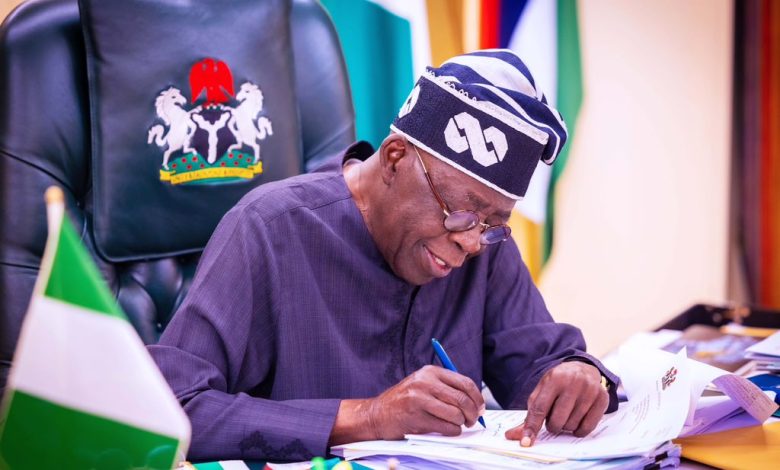
President Bola Tinubu’s government has spent a total of about N3.27 trillion on palliatives to cushion the effect of the fuel subsidy removal on poor Nigerians.
Politics Nigeria reports that Nigeria has experienced worsening economic hardships since the removal of fuel subsidy in May 2023.
The palliatives and loans were meant to cushion the effects of economic hardships on Nigerians and businesses following the removal of fuel subsidies and skyrocketing consumer prices due to high inflation.
These palliatives included N100 billion to acquire 3,000 units of 20-seater CNG-fuelled buses, N200 billion to boost agriculture production, N75 billion for manufacturers, N125 billion for micro, small and medium-sized enterprises and the informal sector, N185 billionn as palliatives for states, N1 trillion on student loans and other programmes.
Others included N315 billion to pay federal workers’ N35,000 allowance for six months, N1.13tn to 15 million households at N25,000 per month for three months from October to December 2023, N70 billion earmarked as palliative measures for lawmakers, and N75 billion loan facility to 1.5 million market women.
Following this removal of fuel subsidy, the World Bank announced that 7.1 million Nigerians were at risk of poverty if the Federal Government failed to compensate or provide palliatives for them.
This would have increased the number of poor Nigerians to 100.9 million, according to the bank.
The bank said, “In the immediate term, the removal of the petrol subsidy has caused an increase in prices, adversely affecting poor and economically insecure Nigerian households. Petrol prices appear to have almost tripled following the subsidy removal.
“The poor and economically insecure households, who directly purchase and use petrol as well as those that indirectly consume petrol, are adversely affected by the price increase. Among the poor and economically insecure, 38 per cent own a motorcycle and 23 per cent own a generator that depends on petrol. Many more use petrol-dependent transportation.
“The poor and economically insecure households will face an equivalent income loss of N5,700 per month, and without compensation, an additional 7.1 million people will be pushed into poverty.”
Responding to this, the Tinubu administration began to announce support through loans and palliatives to Nigerians. In a national broadcast on July 31, the president announced the first sets of palliatives.
All 36 state governments have received both money and food supplies for their people with the past two months.
